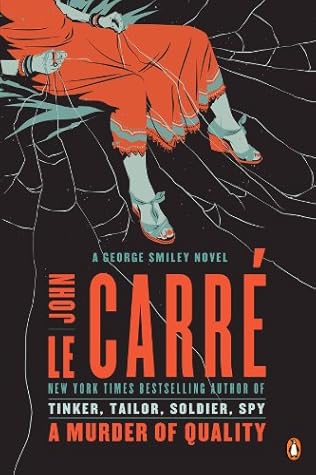More on this book
Community
Kindle Notes & Highlights
It was a beautiful night. As they crossed the Close, Smiley looked up at the tower. It seemed smaller and more peaceful in the moonlight. The whiteness of the new snow lit the very sky itself; the whole Abbey was so sharply visible against it that even the mutilated images of saints were clear in every sad detail of their defacement, wretched figures, their purpose lost, with no eyes to see the changing world.
It was a peculiarity of Smiley’s character that throughout the whole of his clandestine work he had never managed to reconcile the means to the end. A stringent critic of his own motives, he had discovered after long observation that he tended to be less a creature of intellect than his tastes and habits might suggest; once in the war he had been described by his superiors as possessing the cunning of Satan and the conscience of a virgin, which seemed to him not wholly unjust.
Smiley was reminded of Büchner’s fairy tale of the child left alone in an empty world who, finding no one to talk to, went to the moon because it smiled at him, but the moon was made of rotten wood. And when the sun and moon and stars had all turned to nothing, he tried to go back to the earth, but it had gone. Perhaps because Smiley was tired, or perhaps because he was getting a little old, he felt a movement of sudden compassion towards Rode, such as children feel for the poor and parents for their children. Rode had tried so hard—he had used Carne’s language, bought the right clothes, and
...more


